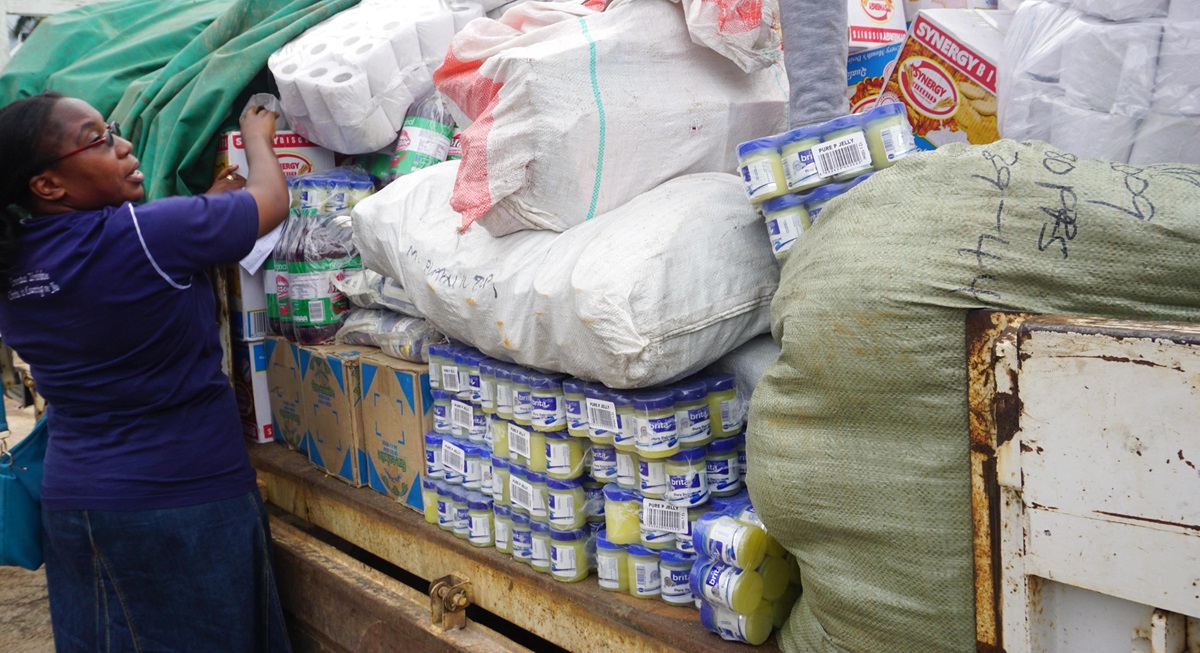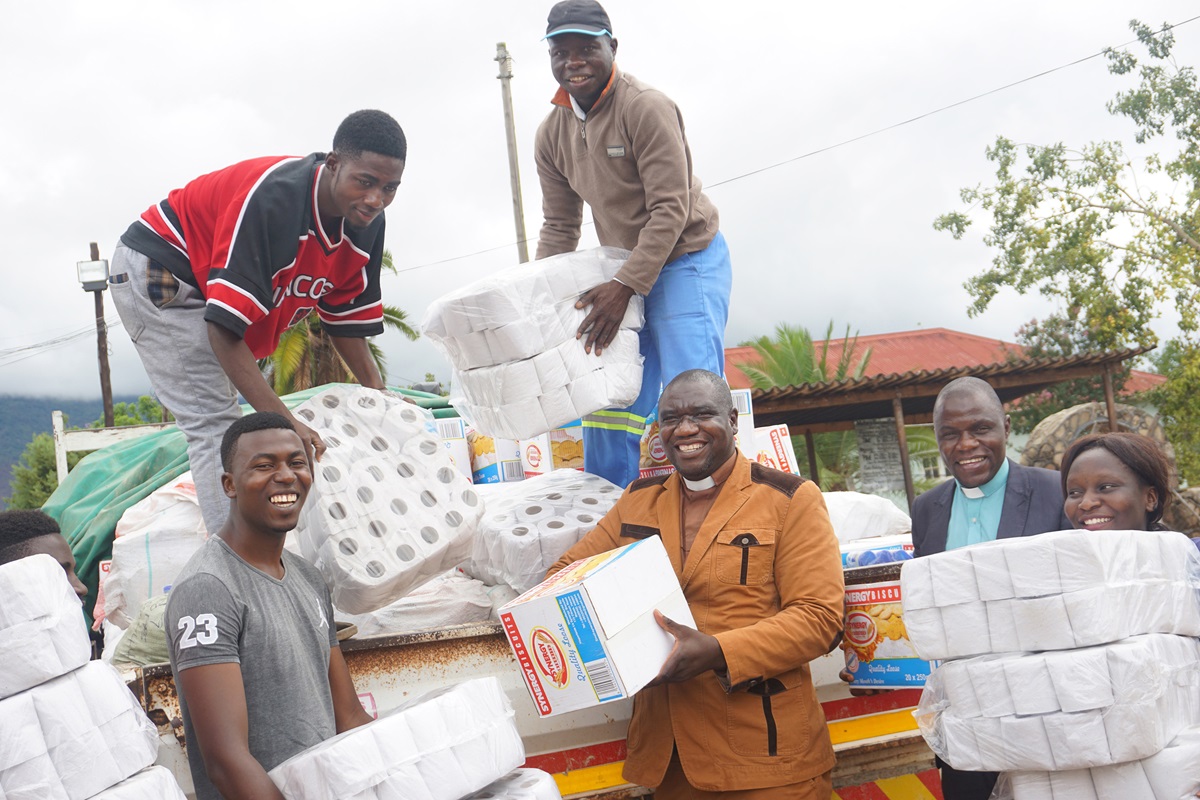The United Methodist Church’s St. John’s Circuit in Mutare District is helping address food shortages faced by prisons around the country.
The church donated $14,000 worth of food and other items to the Zimbabwe Prisons and Correctional Services. The Rev. Togara Bobo, pastor in charge at St. John’s, in partnership with Dr. Mathias and Marian Tapis from Switzerland, spearheaded the holiday donation.
Inmates received toothbrushes, toothpaste, towels, underwear, shoes and other essential items in addition to the much-needed food.
“The donations that have run for the past four years now have benefited over 800 inmates, among them pregnant and breastfeeding women,” Bobo said.
The church delivered the goods to Mutare Provisional Remand Prison, Mutare Farm Prison and Probation Hostels and Remand Home.
Bobo said while the donations have addressed some of the challenges at the prison centers, more needs to be done for the inmates.
“Although we have managed to assist with donations, the demand for more resources in prisons is still high and needs the support from the corporate world,” Bobo said.
Charles Nyamukuse, chief correctional officer for Mutare Provisional Remand Prison, applauded the gesture by the church saying it would go a long way in addressing food shortages in prisons.
“The food hampers have come at the right time as our institution has been facing challenges in providing enough food to prisoners due to difficult economic conditions the country is going through,” Nyamukuse said.
Zimbabwe continues to face a shortage of foreign currency and prices for food and other goods and services increased sharply in the last quarter of 2018.
With the economic uncertainty and budget cuts as the government focuses on its economic recovery plan, Nyamukuse said prisons have been forced to rely on donations to feed the nearly 20,000 inmates in the correctional system.
In 2018, he said, St. John’s Circuit was the major donor within the three prisons. He said that although some inmates receive supplementary food and other items from their relatives, not all have family who visit them.
“We are grateful for the support as other inmates have not been visited ever since their incarceration, leaving them with no alternative on getting supplementary food and other non-food items,” Nyamukuse said.
One of the female inmates, 20-year-old Bridget Mhlanga, an expectant mother, commended the church for helping the needy in places like prisons. She said the gesture has restored their human dignity.
“I am delighted with what (The United Methodist Church) has done for us in spite of being incarcerated. We remain human beings who also deserve a decent living,” she said.
Mhlanga said neither her husband nor any of her other relatives has come to see her since her incarceration.
“I have been in prison for the past three months and no one from my family has visited me. I was concerned about where to get clothes for my future baby,” she said.
The church’s donation included diapers and other baby supplies, but after hearing Mhlanga’s concerns, volunteers promised to bring back baby clothes before the birth of her child.
Another inmate, Robert Machinjike, 65, who has been in prison for the past four years, said the members of St. John’s have become part of his family as they have stood by him in the absence of his biological family.
“When I see Rev. Bobo and his friends from (The United Methodist Church), I get content even in the absence of my own people,” he said.
He said after serving his prison sentence, he hopes to join the United Methodist family as he has learned good deeds from church members.
"On completion of my prison sentence, I wish to worship under (The United Methodist Church) for I have learned a lot of new things from the way they perceive the society,” Machinjike said.
The Rev. Willard Karamba, district connectional ministries director, said the Gospel according to Matthew 35:36 commands the congregants to clothe the naked, visit the sick and see those in prisons.
“It is the responsibility of the church to take care of the needy and the sick while paying visits to those in the prisons in fulfilment of the Gospel of Matthew,” he said.
According to Mutare Remand Prison sister in-charge Mutsa Dzveta, inmates who need special care and support, such as pregnant and nursing women, minors accompanying their mothers in prison, juveniles and offenders with mental challenges, have been on the increase and burdening the institution.
“If the prison had enough resources in terms of medicines and special diets for special cases, the situation could be manageable,” said Dzveta, “but (these things) are in short supply and we rely on donor support.
“Donor partners are irregular making our lives very difficult. It is not easy to leave someone groaning of pain knowing well that if you administer this medication he or she can feel better.”
Chingwe is communications coordinator for the Zimbabwe East Annual Conference. News media contact: Vicki Brown at (615) 742-5470 or newsdesk@umcom.org. To read more United Methodist news, subscribe to the free Daily or Weekly Digests.
Like what you're reading? Support the ministry of UM News! Your support ensures the latest denominational news, dynamic stories and informative articles will continue to connect our global community. Make a tax-deductible donation at ResourceUMC.org/GiveUMCom.





